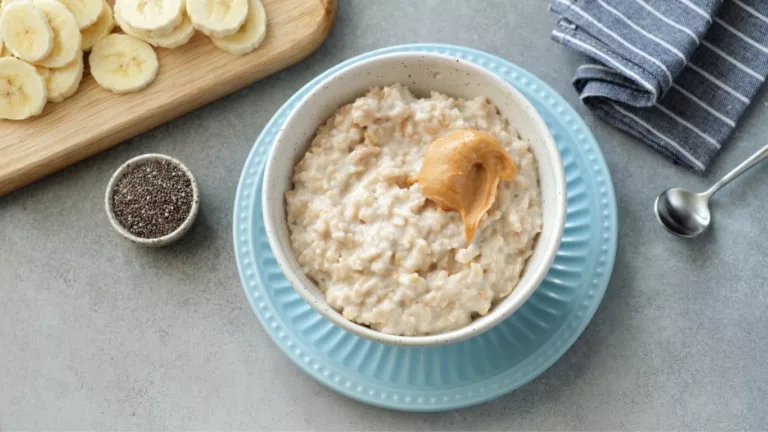Rheumatoid Arthritis and Lifestyle Modifications: What You Need to Know
Rheumatoid arthritis (RA) can be tough to deal with, but with the right lifestyle changes, it’s totally manageable. Let’s break down how adjusting your habits can help control symptoms and improve your quality of life.
What is Rheumatoid Arthritis?
Rheumatoid arthritis (RA) is an autoimmune disorder that primarily affects your joints, causing inflammation, pain, and stiffness. Over time, it can lead to joint damage, which is why managing it effectively is crucial. While there’s no cure for RA, there are several ways to help reduce symptoms and slow progression.

The Role of Diet in RA Management
When it comes to managing RA, your diet plays a significant role. While there’s no “RA diet,” certain foods can help reduce inflammation and ease joint pain, while others may trigger flare-ups. A good diet rich in anti-inflammatory foods can support your treatment plan and help manage symptoms.
What to Add to Your Diet:
- Omega-3 Fatty Acids: Found in fatty fish like salmon, mackerel, and sardines, omega-3s have proven anti-inflammatory effects.
- Fruits and Vegetables: High in antioxidants, they can help reduce inflammation and protect against further joint damage.
- Nuts and Seeds: These are excellent sources of healthy fats that can support joint health.
- Whole Grains: Opt for whole grains like quinoa, brown rice, and oats instead of refined carbs to help reduce inflammation.
What to Avoid:
- Processed Foods: Junk food, fast food, and processed snacks often increase inflammation and exacerbate RA symptoms.
- Red Meat: While you don’t have to avoid it entirely, consuming too much red meat can promote inflammation.
- Nightshades: Vegetables like tomatoes, peppers, and eggplants can trigger flare-ups for some people with RA. Cut back if you notice a pattern.
Exercise: Move It or Lose It
Exercise is a powerful tool in managing RA, though it might seem daunting when you’re in pain. Regular movement can keep your joints flexible, reduce stiffness, and improve overall strength. But don’t worry—it doesn’t mean hitting the gym for heavy lifting. Low-impact exercises are perfect.
Low-Impact Activities:
- Swimming: The buoyancy of water supports your body, making swimming a great option for those with RA.
- Walking: A simple, low-impact way to keep moving without stressing your joints.
- Yoga: Helps improve flexibility and strength around your joints while calming your mind.
- Tai Chi: A slow, controlled form of exercise that improves flexibility, balance, and stress reduction.

Stress Management: Keep Calm and Carry On
Stress can increase inflammation and exacerbate symptoms of RA. Learning how to manage stress is a crucial part of your treatment plan. Stress reduction can also improve your mood and overall sense of well-being.
Stress Reduction Techniques:
- Meditation: Even a few minutes of deep breathing can lower stress levels and reduce the perception of pain.
- Mindfulness: Staying present and aware can help manage emotional responses to pain and reduce stress.
- Hobbies and Interests: Engaging in activities you love, like reading, knitting, or painting, can offer a therapeutic escape and reduce stress.
Sleep: The Unsung Hero
Good sleep is essential for managing RA. Proper rest allows your body to heal and helps control inflammation. Poor sleep can worsen pain and stiffness.
Tips for Better Sleep:
- Optimize Your Sleep Environment: Make sure your room is cool, dark, and comfortable.
- Establish a Bedtime Routine: A calming pre-sleep routine can improve the quality of your rest.
- Stay Consistent: Going to bed and waking up at the same time every day helps regulate your sleep cycle.

Medication and Treatment: Don’t Forget the Doctor
Along with lifestyle changes, medications like disease-modifying antirheumatic drugs (DMARDs) and biologics can be essential in managing RA. Always follow your doctor’s recommendations for the best treatment plan.
Conclusion
Rheumatoid arthritis doesn’t have to control your life. By adopting the right lifestyle changes—like improving your diet, staying active, reducing stress, and getting good sleep—you can manage symptoms and continue doing the things you love.
Appendices
FAQs
- Can RA be cured with lifestyle changes? While there’s no cure for RA, lifestyle changes can significantly reduce symptoms and improve quality of life.
- Is it okay to exercise if I have RA? Yes! Exercise is beneficial for RA. Start slow with low-impact activities and listen to your body.
- What’s the best diet for RA? A diet rich in anti-inflammatory foods, like omega-3 fatty acids, fruits, and vegetables, is ideal for managing RA symptoms.
- How can I manage stress with RA? Meditation, mindfulness, and engaging in enjoyable hobbies can help reduce stress and manage RA symptoms.
- Does sleep affect RA? Proper sleep is crucial for managing RA. It helps reduce inflammation and promotes healing.
References
- National Institute of Arthritis and Musculoskeletal and Skin Diseases (NIAMS). (2024). “Rheumatoid Arthritis.” Read More
- Smith, A., & Lee, J. (2023). “Lifestyle Modifications for Managing Rheumatoid Arthritis.” Journal of Rheumatology, 45(4), 123-130.
- Healthline. (2024). “Diet and Exercise Tips for Rheumatoid Arthritis.” Read More
Disclaimer
The information provided in this article is for educational purposes only and should not be considered medical advice. Always consult with your healthcare provider for personalized advice and treatment. Individual needs may vary, and professional guidance is crucial for your specific case of rheumatoid arthritis.














